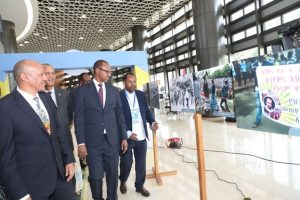
ADDIS ABABA- An integrated approach is needed to minimize or potentially eradicate complications caused by Traditional Bone Setting (TBS), according to the Ethiopian Society of Orthopedics and Traumatology (ESOT).
At an advocacy workshop for media personnel, ESOT President Ephrem Gebrehana emphasized the need for comprehensive research due to the paradoxical relationship between the availability of modern orthopedic care and the high complication rates from TBS. He pointed out that previous studies lacked well-planned designs, which prompted further investigation.
The study, which included 460 pediatric patients under 18 years old, found that children experienced more severe complications and infections compared to adults. It also revealed that 76% of pediatric injuries were due to falls, while road traffic accidents were the major cause of injuries among adults. Additionally, a community-based study in Sidama State found a complication rate of 68% among 860 patients in rural and urban areas
The Ministry of Health Policy, Strategy and Research Lead Executive Officer Endegena Abebe (MD) noted that TBS practices are based on indigenous knowledge. He stressed the need for integrated efforts to balance cultural preservation with the benefits of modern orthopedic care. The study by Bone Setting Associated Disability (BOSAD) is seen as crucial for bridging gaps between policymakers and researchers.
An Advanced Trauma and Arthroplasty Subspecialist Sintayehu Bussa (MD) stated that trauma is a leading cause of morbidity and mortality in Ethiopia, responsible for 10% of deaths and exceeding the total deaths caused by malaria, TB, and HIV/AIDS combined. Major challenges include referral delays, transportation issues, financial constraints, and reliance on traditional medicine. He emphasized the importance of prevention, integrated trauma management, and rehabilitation.
Orthopedic and Pediatric Orthopedic Subspecialist Bekalu Wubshet (MD) called for legal protections for children, first aid training in schools, and a societal shift towards modern trauma care. He also advocated for reducing or eliminating TBS complications and better monitoring of TBS practices.
Media professionals are urged to create evidence-based content to raise public awareness and promote health, working in collaboration with healthcare facilities. The BOSAD study aims to provide safe, affordable, and accessible healthcare to all musculoskeletal injury patients, particularly pediatric patients in rural areas.
Data for the study was collected from 1,830 patients at health facilities and over 860 patients in a community-based study across eight university hospitals in six states, including Bahirdar, Assela, Gondar, Jimma, and Addis Ababa, with financial support from AO Alliance.
BY BETELHEM BEDLU
THE ETHIOPIAN HERALD TUESDAY 27 AUGUST 2024





